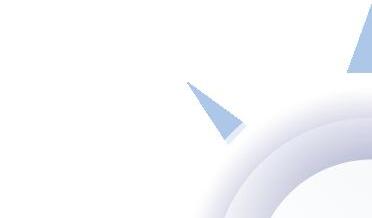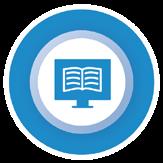




The purpose of the TBR General Education Core is to prepare every student to navigate a world of evolving opportunities. It is unbounded by academic discipline and challenges students to discover the inherent interconnectedness of knowledge and the intersection of self and society.
The General Education Core develops skills in acquiring, evaluating, and using information as well as communicating ideas through digital, written, oral, artistic, scientific, and mathematical expression. It challenges students to think independently, write clearly, and speak effectively, and to employ logical and critical reasoning to solve problems even when faced with incomplete, ambiguous, or conflicting data.
The Core encourages students to develop a curiosity for learning, an appreciation of conceptual complexity, and a deepened sense of self-awareness regarding their own beliefs and values. It helps students engage with civility and respect others who may have contrasting life histories, opinions, and worldviews. It fosters an appreciation for human commonality and teaches individuals the ethical implications of living in a global, social ecosystem.
Ultimately, the Core’s purpose is to equip every student to pursue a challenging career, experience a rewarding personal life, and inspire others to do the same.


The TBR Core framework document outlines the key components of general education within the community college system and provides clear guidance on how colleges can align their curricula with the TBR Core Statement of Purpose.
Core courses are housed in six categories: Communication, History, Humanities/Fine Arts, Mathematics, Natural Sciences, and Social/Behavioral Sciences, with each category encompassing specific academic disciplines. Learning outcomes for each category are aligned with Core Competencies distilled by TBR faculty from the Core Statement of Purpose. These category learning outcomes are established and measured through assessments designed, reviewed and approved by the faculty from the associated disciplines at each college.
Critical Thinking is the Core Competency Constellation’s North Star — a guiding principle for all courses in the TBR Core curriculum, which comprises the seven competencies crucial for effectively navigating life at all levels: personal, professional and civic.
As they experience the range of TBR Core courses in their program, students will have repeated opportunities to develop, refine, and reinforce all seven core competencies as they thoughtfully engage with key insights from across the academic spectrum and the history of human thought.









Global & Cultural Awareness
Develop awareness of how diverse cultures relate to self, society and the global environment.
Communication
Create, evaluate and share ideas using appropriate oral or written techniques designed for various audiences.
Critical Thinking
Analyze and evaluate ideas, issues and evidence to form rational conclusions.
Creative & Artistic Expression
Engage with the creative process through reflection and analysis of artistic works and the direct creation or performance of creative or artistic works.
Scientific Inquiry & Mathematical Reasoning
Understand and explore the world through observation and experimentation, mathematical principles and formal reasoning.
Ethical Reasoning
Identify, develop and assess ethical arguments from a variety of social and moral perspectives.
Information Literacy
Locate relevant information, evaluate its usefulness and quality and apply it ethically and effectively.
The goal of the Communication requirement is to provide students with the tools to communicate effectively using a variety of modalities while using appropriate rhetorical techniques. Addressing issues in today’s world requires communication of creative, problem-solving approaches with others through written, oral, and nonverbal channels, and the ability to listen and communicate collaboratively with others to engender solutions. The skills gained in these courses enhance students’ ability to define and solve problems, to communicate these definitions and solutions, make reasoned judgments after critical evaluation of research, and to participate in collaboratively solving problems of local and/or global significance.







Analyze essential rhetorical concepts, including purpose, audience, and context.
Compose a variety of original messages using effective written communication skills.
Deliver a variety of original messages using effective oral communication skills.
Apply appropriate communication skills to move an idea from process to outcome.
Integrate credible research into academic projects.
Employ ethical interpersonal communication with others in multiple contexts.
This requirement is not met by other courses such as writing intensive courses in disciplines like Literature, History, Theatre, Social Sciences, or Philosophy; furthermore, nor is this requirement met by other courses using oral presentations. Courses meeting this outcome also must not be based in a specific field or profession.
Courses satisfying the Communication category must meet four (4) or more of the above learning outcomes.
The goal of the Humanities/Fine Arts requirement is to empower students to be responsible, well-informed citizens who contribute meaningfully to their communities. This curriculum aims to develop critical and logical thinking, creativity, empathy, and cultural awareness, enabling students to better understand contemporary issues in light of historical developments and global perspectives. Engaging actively in these fields, students cultivate a perspective that combines valuable insights from the past with an enhanced understanding of the present.







Explain artistic, literary, or philosophical works within the context of the discipline.
Analyze the ways that various artistic, literary, or philosophical works reflect their cultural and historical context or contribute to the present (contemporary) world.
Identify cultural differences and commonalities through examining a diverse selection of artistic, literary, or philosophical works.
Create or interpret artifacts of expression, as performer or as critic, through the development of skills of performance or skills of analysis and criticism.
Employ critical and analytical methodologies of the Humanities or Fine Arts which may include direct observation, reflection, and ethical research.
Effectively convey ideas and arguments with attention to several of the following: relevance, completeness, clarity, coherence, consistency, or persuasiveness.
No one course is responsible for all six learning outcomes or all the Core Competencies aligned to each. The Core Competencies supported will differ according to course and/or discipline. Courses do not narrowly focus on those skills, techniques, and procedures specific to a particular occupation or profession.
Courses satisfying the Humanities/Fine Arts category must meet four (4) or more of the above learning outcomes.
The goal of the History requirement is to illuminate the past and enhance our understanding of the present. Students learn about the contributions of past cultures and societies to the contemporary world and their influence on political, geographic, economic, religious, and intellectual institutions, structures, and processes across a range of historical periods. Students are also exposed to how historians use evidence to interpret the past and are challenged to think critically about evidence, including primary and secondary sources.


PRIMARY CORE COMPETENCIES





Analyze the impact of political, geographic, economic, social, cultural, religious, and intellectual institutions, structures, or processes across a range of historical periods and cultures.
Identify and contextualize historical eras, events, movements and trends from a national and global perspective.
Examine both primary and secondary sources to answer historical questions and distinguish between historical fact, opinion, and interpretation.
Evaluate both primary and secondary sources to determine their value and credibility.
Create historical and/or contemporary arguments and narratives about the past by using historical methods and tools while recognizing appropriate attribution and citation.
For the purpose of the History requirement, courses will include surveys in topics such as United States History, World History, Western Civilization, Tennessee History, and African American History. General Education History courses should be broad in nature, applicable to a variety of majors, and transferable to four-year institutions. Courses should not focus on particular skills, techniques, and procedures specific to a particular occupation or profession.
Courses satisfying the History requirement must meet four (4) or more of the above learning outcomes.
The goal of the Mathematics requirement is to provide a learning environment for students to better understand and explore the world by utilizing mathematical principles and formal reasoning. Students will apply mathematics by analyzing and evaluating both the process and the solutions for conceptual and everyday situations. Students will demonstrate knowledge of mathematics through relevant mathematical modeling, problem solving, critical thinking skills, and the use of appropriate technologies.







Apply mathematical principles or basic statistical reasoning to solve conceptual or applied problems and determine if solutions are reasonable.
Communicate mathematical concepts using appropriate terminology and symbolic language.
Analyze the behavior of, and solve, real world problems relating mathematics to other disciplines.
Use appropriate technology to analyze data and graphs, as well as model real world behavior.
For the purpose of the Mathematics requirement, courses will come from disciplines in mathematics. Mathematics courses should be broad in nature, applicable to a variety of majors, and transferable to four-year institutions. Courses should not focus narrowly on the particular skills, techniques and procedures specific to a particular occupation or profession. Students are encouraged to take the math course(s) appropriate for their intended degree or program of study.
Courses satisfying the Mathematics category must meet all category learning outcomes.
The goal of the Natural Sciences requirement is to guide students toward becoming scientifically literate as issues in today’s world require scientific information and a scientific approach to informed decision making. This scientific understanding gained in these courses enhances students’ ability to define and solve problems, reason with an open mind, think critically and creatively, make sound judgments after critical evaluation of data, and make decisions that may have local or global significance.
CORE COMPETENCIES







Use scientific principles to apply experimental techniques, make observational analyses, interpret experimental results, and draw logical conclusions.
Describe the natural and/or physical world using basic scientific language and processes.
Apply scientific principles to address problems or issues in the natural and/or physical world.
Critically analyze the impact of scientific discoveries on society.
For the purpose of the Natural Sciences requirement, courses will come from disciplines such as astronomy, biology, chemistry, physics, geology, and interdisciplinary studies in science. A significant laboratory component is required.
Courses satisfying this category must meet three (3) or more of the learning outcomes.
The goal of the Social/Behavioral Sciences requirements is (a) to develop in the student an understanding of self and the world by examining the content and processes used by social and behavioral sciences to discover, describe, and explain human behavior and social systems; (b) to enhance knowledge of social and cultural institutions and the values of this society and other societies and cultures in the world; and c) to understand the interdependent nature of the individual, family, and society in shaping human behavior and determining quality of life.


PRIMARY CORE COMPETENCIES





Recognize, describe and explain social institutions, structures and processes occurring within a complex global and diverse society.
Think critically about how individuals are influenced by social institutions in their own and other diverse cultures.
Investigate the relationship between individuals and societies as it affects personal behaviors, social development and quality of life of individuals, families, and communities.
Examine the impact of behavioral and social scientific research on major contemporary issues and their disciplines’ effects on individuals and society.
Gather, analyze and present research data perceptively and objectively using appropriate principles, methods, and technologies for the purpose of drawing logical conclusions on human behavior.
Evaluate ethical implications in the social and behavioral sciences.
Analyze and communicate the values and processes that are used to formulate theories regarding the social context of individual human behavior in the social and behavioral sciences.
For the purpose of the Social/Behavioral Sciences requirement, courses using the above learning outcomes are fulfilled within discipline areas such as anthropology, economics, geography, psychology, political science, sociology, social work, health/wellness, service learning, history and/or communication.
Courses satisfying the SBS category must meet four (4) or more of the learning outcomes.
English Composition: 6 hours
English Oral/presentational: 3 hours
Literature: 3 hours
Core Distribution Model for the A.A.S. Degree
